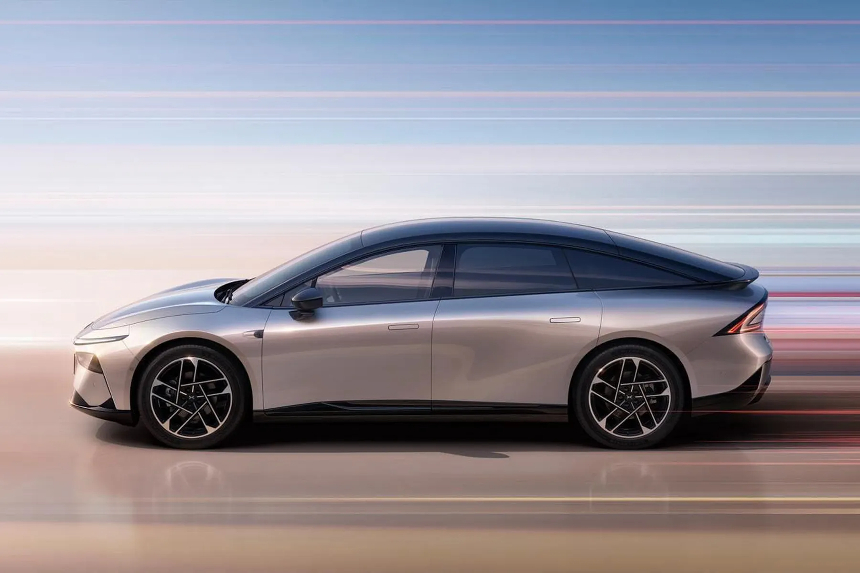Sign up for daily news updates from CleanTechnica on email. Or follow us on Google News!
The Paris Auto Show is usually a place for automakers to display their latest car designs. It’s very much like a haute couture event, with a bevy of lithe young models showing off the latest colors and fashions. It is also an opportunity for manufacturers to get direct feedback from potential customers about how the public views their latest offerings. That market research can be as general as counting how many people stop to gawk at each display and pick up a brochure or as specific as micro-analyzing the facial expressions of show patrons in tenth of a second slivers of video that reveal what they are really thinking.

Glitz is out for the most part at the Paris Auto Show this year. Although, BYD will be showcasing the Yangwang U8, a luxury SUV costing around 1 million yuan ($141,509) — the hunkiest, chunkiest go anywhere, do anything backroad basher designed to go toe to toe with the best that Land Rover and Mercedes have to offer. If Gucci hiking boots are de rigeu when you dream of off-road adventure, the U8 has to be high on your shopping list.
Cost, Not Fashion, In Paris This Year
For the hoi polloi, the central focus of the Paris Auto Show this year is lower cost offerings. The average price of an electric car in Europe is just north of €45,000 today. Germany and Sweden have cut way back on their EV incentive programs, the invasion of Ukraine has contributed to higher costs of living for many Europeans, and EU exhaust emissions standards are threatening automakers with more than €15 billion in fines if they cannot comply. All in all, “The mood is not great around EVs right now. There’s not enough charging infrastructure, there’s volatility on price, but let’s see. We are really trying our best,” Renault CEO Luca de Meo told Bloomberg.
Renault is leading the way in Paris this year by unveiling the R4, which is expected to cost less than €35,000. The original R4 was as ugly as sin but much beloved for its dependability and low cost. Renault has been coy about showing the whole car, relying instead on snippets that hide as much as they show in its press release about the car. Renault’s Dacia budget brand will premiere the Bigster, a larger SUV aimed at countering “spiraling costs” in the segment. The company will also showcase a prototype of an electric Twingo that is supposed to cost less than €20,000 when it hits the market in 2026. Range will not be the strong suit for such a car, but rather emissions-free driving in congested European cities — like Paris.
The company is also showing off the new R5, a €25,000 electric version of a 1970s gasoline car that offered fuel-efficient transport during a time of soaring oil prices. For those who are interested, What Car? has posted a 20-minute-long video review of the R5 that is highly complimentary of the car.
Stellantis is tapping Chinese partner Leapmotor to bring down the cost of its electric cars. Models presented in Paris include the Leapmotor B10, a compact SUV aimed at younger drivers that is expected to undercut competing models on price. The reception at the show may determine whether Stellantis decides to produce Leapmotor vehicles at a factory in Poland.
Citroën, which is part of the Stellantis group, plans to show moderately priced EVs in Paris, including the New C3 Aircross, which it calls “the most affordable compact SUV” on the market. It’s also showcasing the €23,300 Citroën ë-C3 city car, which started shipping months behind schedule in mid-September due to software issues.

The Chinese Are Coming! The Chinese Are Coming!
The biggest news at the Paris Auto Show this year will likely come from Chinese manufacturers. Despite the recent decision by the EU to impose new tariffs on electric cars made in China, BYD will have a major presence at this year’s show, including showcasing many plug-in hybrids, which have suddenly become the hottest items in the electric vehicle segment. XPeng, which is partnering with Volkswagen, will introduce its P7+ sedan, a longer wheelbase version of the €50,000 P7 that competes with more expensive midsize models from BMW and Mercedes.
Beauty is in the eye of the beholder, of course, but the P7+ is one fine looking automobile. It avoids the current design idiom that burdens new cars with random creases that stop and start at random, making the cars look like they have already been in a crash before they leave the showroom floor. The XPeng offering is smooth and svelte in a way the delights the eye with hardly a crease or a crevice to be found anywhere on its creamy smooth exterior.

Great Wall Motor and Nio are absent from the Paris Auto Show this year, but a number of Chinese automakers have sent their staff to Paris to discuss potential partnerships, market entries, and European production with local manufacturers and dealers. The new tariffs (which have yet to be implemented) will certainly encourage many foreign manufacturers to consider building their cars in Europe. Perhaps the EU could require them to partner with local companies. Wouldn’t that be an interesting twist, since that’s how China started out when European companies first wanted to build cars in China? Turnabout is fair play and all that.
Volkswagen Group is showing off newish models like the Elroq, an electric SUV from Skoda that is priced roughly the same as its combustion engine counterpart. VW will also present an ID GTI concept car, an EV version of its highly adored Golf GTI model. The true test of Volkswagen’s ability to make a battery-powered “people’s car” may be the ID.2all, Bloomberg says. The launch of that €25,000 EV isn’t expected until the end of next year.
Even BMW is bringing its most budget friendly offerings to Paris this year, where it will showcase several Chinese-made MINI models alongside pricier performance oriented versions, including a 5-door Aceman. It will also display an electric concept for its next generation entry level SUV, the Vision Neue Klasse X. BMW promises 30% faster charging and up to 800 kilometers (497 miles) of range on a single charge.
The Takeaway
“We are finally to starting to see smaller vehicles and more affordable EVs,” Serge Gachot, director of the Paris show, told Bloomberg. “There is still a gap with Chinese EVs in terms of costs, but that gap is narrowing.” That’s good news. Many European automakers — especially Volkswagen — are struggling to manage a number of challenges. BMW, Stellantis, and Mercedes have also issued investor advisories recently, warning shareholders that their financial performance for this fiscal year and next could be disappointing.
Everyone is putting on a brave face, but there are some companies with products on the floor in Paris this year who may not be in business in a year or two. The key to profitability is high volumes that create economies of scale, but those volumes can only occur if prices are low enough to attract large numbers of buyers. Not every company will be able to solve this Gordian Knot.

Have a tip for CleanTechnica? Want to advertise? Want to suggest a guest for our CleanTech Talk podcast? Contact us here.
Latest CleanTechnica.TV Videos
CleanTechnica uses affiliate links. See our policy here.
CleanTechnica’s Comment Policy





